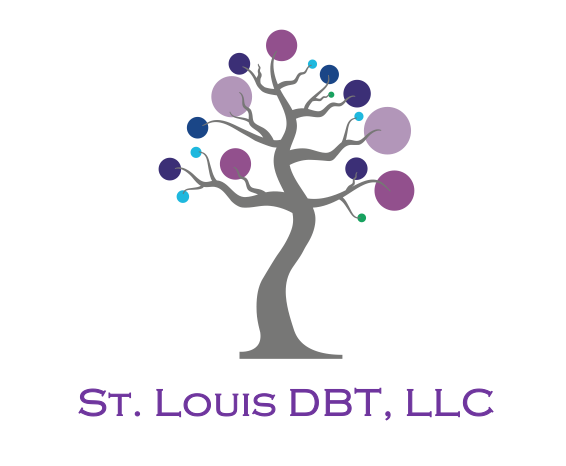Therapists Use Skills Too
DBT therapists constantly advise clients to USE SKILLS—I’m sure sometimes to the point of sounding like a broken record. Of course we do this because DBT is an evidence-based treatment that combines individual therapy with phone coaching and skills training groups to help people recognize and regulate their emotions, improve interpersonal relationships, and tolerate stressful situations. But really, DBT therapists recommend using skills because we use them ourselves—and they work!
Therapists are also partners or spouses, parents, friends, siblings, adult children, students, professors, in-laws, and much more. All of these roles require us to tolerate a certain amount of distress, accept reality when we can’t change it, and manage crisis situations. For example, we use pros and cons lists to help us make decisions and explore how that decision fits with our goals and values. We use mindfulness throughout the day, especially to help us recognize if we’re being judgmental, and turning that instead into loving-kindness (we try to be good friends and parents, even if the ones we love drive us bananas!).
Meditation is a big part of many DBT therapists’ lives, and we often try to practice with family members and friends to increase the likelihood of us actually following through with our plans to meditate (we need motivation, too!). We may write out scripts or role-play with other therapists before important conversations or negotiations (we have bosses, too!) so that we’re working skillfully towards obtaining the objectives we actually want.
As part of DBT team meetings, therapists practice conducting behavior chain analyses for other team members. This gives the group an in-depth analysis of events and factors before, during and after an instance of problematic behavior. We focus on what might be needed for the events and behaviors to be different so that the problem behavior doesn’t occur again. This can help us move towards a more desired outcome.
Some of the behaviors therapists might “chain” during a team meeting include overeating, under-exercising, frustrating interpersonal interactions (I mentioned we may have in-laws, right?), watching too much TV, avoiding housework, or succumbing to a fear of flying. Team members can help identify vulnerability factors, emotions, body sensations, and events that lead to the behaviors, and, most importantly, help their fellow therapists find skills that can help them cope more effectively in the future.
Therapists often ask their clients to check the facts, and we have to remind ourselves to do the same. Often we find ourselves reacting to our thoughts or interpretations of events or other peopleinstead of the actual facts of the matter. Forgetting to check the facts can cause us to react emotionally, which then can make us feel miserable, as the situation gets even worse. Instead of the rigid belief “I have to be in control,” I could think to myself, “I like being in control better than being out of control.” Instead of thinking in absolute terms, which easily can set off extreme emotions, I try to check the facts of situations.
For example, if I am not invited to an outing with girlfriends, I could determine that they hate me, and that therefore I hate them for being such hurtful, cliquey friends. Or I could check the facts…my friends know I work late or usually have an exercise class that night, or they have a project to discuss, or their outing was an impromptu event after seeing each other at the grocery store.
These are just a few examples of therapists using DBT skills in our daily lives. We practice them in “regular,” everyday situations so we’re more likely to use them when we’re stressed or highly emotional—they come more easily that way. We wouldn’t recommend skills if they didn’t work for us. What are some ways you use skills to cope with or change a situation?

